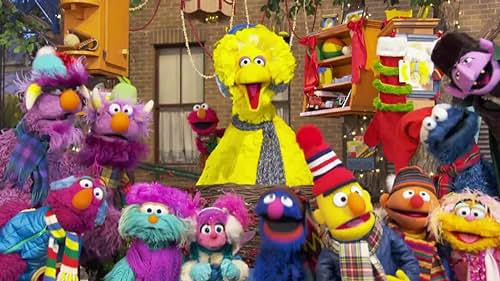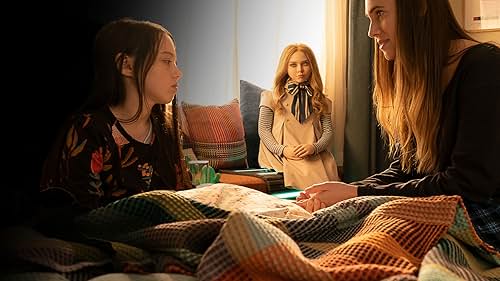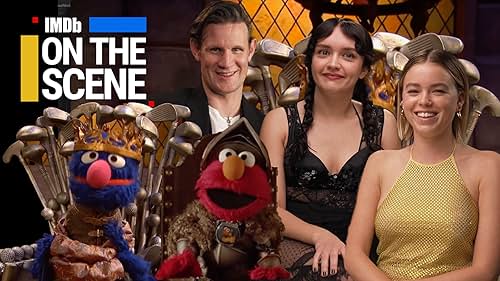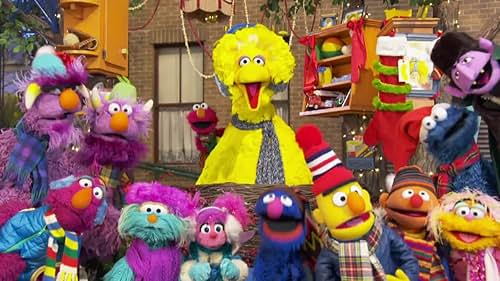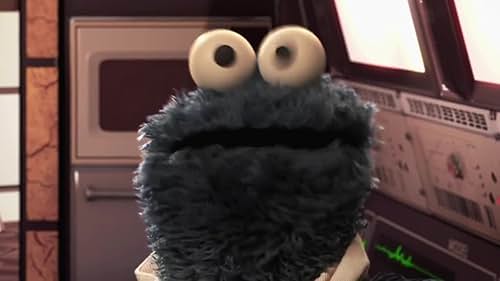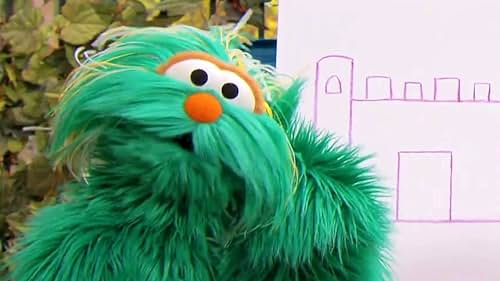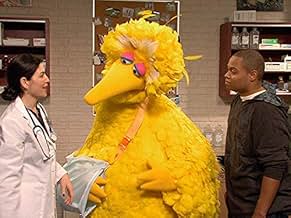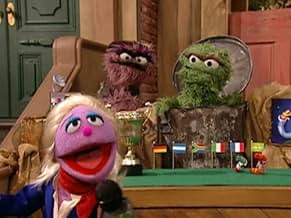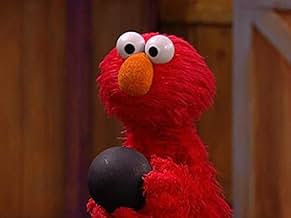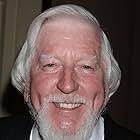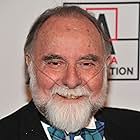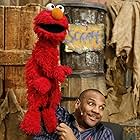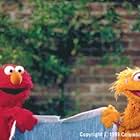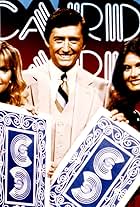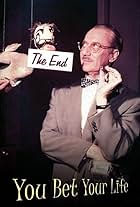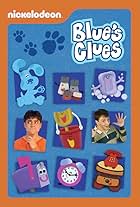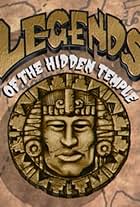On a special inner city street, the inhabitants, human and muppet, teach preschool subjects with comedy, cartoons, games, and songs.On a special inner city street, the inhabitants, human and muppet, teach preschool subjects with comedy, cartoons, games, and songs.On a special inner city street, the inhabitants, human and muppet, teach preschool subjects with comedy, cartoons, games, and songs.
- Won 6 Primetime Emmys
- 252 wins & 352 nominations total
Browse episodes
Storyline
Did you know
- TriviaWhen Will Lee died, the production staff decided not to cast another actor as neighborhood grocer Mr. Harold Hooper. Instead, they wrote a special episode dealing with the loss of a loved one ("Goodbye, Mr. Hooper"). When the other cast members talk to Big Bird about the death of loved ones, some are visibly near tears. A child psychologist was brought in to help the writers. The episode announcing Mr. Hooper's death was scheduled for a public holiday, and was publicized in many newspapers so parents could be prepared to answer their children's questions. They were very careful not to say that Mr. Hooper died in a hospital, to avoid making children fear going to the hospital. In polls, fans have consistently voted this episode as the most moving and memorable.
- Quotes
Old King Cole: What ho! Bring me my royal pipe. And step on it.
Kermit the Frog: [to the TV audience] At this point, you might think we'd go for the cheap joke. But we're not going to.
- Crazy creditsMost episodes aired from 1969 to the 2000s do not have complete closing credits; ending credits usually appeared at the end of the Friday installment, or when another weekday episode ran short.
- Alternate versionsIn 2006, selected episodes from the first five seasons of the series (1969-1973) were released to DVD. Due to rights issues regarding music and some footage, slight edits were made to these episodes, sometimes involving substituting other segments. In addition, the 5 complete episodes in the set (entitled Sesame Street: Old School Vol. 1) are each preceded by newly made animated segments introducing each episode.
- ConnectionsEdited from Luxo Jr. in 'Surprise' and 'Light & Heavy' (1991)
- SoundtracksA NEW WAY TO WALK
Written by Mark Saltzman and Joe Raposo
Performed by The Oinker Sisters
1986 Sesame Street Records, Instruct. Children's Music, Inc. (ASCAP)
Featured review
When I was a child, there were two main educational programs shown to children. Play School, being the other one, basically got me shouting at the television that I was not retarded, not stupid, and not a diminished human being, just a child. From what I've seen from observing some of my cousins' children, it hasn't changed a lot except parents have revised their opinion of its suitability for five year olds. Unfortunately, Sesame Street is going much in the same direction.
In the 1990s, Sesame Street had a rather nasty competitor in the shape of Barney, a purple dinosaur with a support cast that showed no difference in emotional response. Even when that support cast consisted of four year olds and fourteen year olds. As if that wasn't harmful enough, Barney would openly tell children they weren't good if they didn't have good feelings, or alter the rules of a game to make someone else the winner. That such "lessons" were allowed to be broadcast shows how useful the regulators of television really are. By contrast, the Sesame Street I remember even dealt with such issues as the death of a loved one. Goodbye, Mr. Hooper was one of the most amazing episodes of children's television ever broadcast because it made an effort to try and teach children about something so difficult that even live adults are often no help with it.
Other brilliant aspects of the show included using monsters to portray certain feelings or behaviours that the audience might be conflicted about. They had a cookie monster to show what a negative (but highly funny, the way they presented it) appearance gluttony can bring. They had a grouchy monster to show the effects of an anti-social mentality. More "cute" monsters such as Grover were used to show things like fear or sadness. There was a good reason for all of this. Negative feelings are difficult enough for a child to understand, so having puppets to thoroughly explain them was very educational.
Kudos are also due the adult cast of the show. During every episode I saw, even Goodbye, Mr. Hooper, the adults were never condescending or smug. They never acted as if they had every answer. Instead, they told the monster, other puppet, or child characters a few useful tidbits and let these characters work things out for themselves. Even today, if you see the sequences with such annoying characters as Elmo, it is the children or the child-like characters who deliver all the answer lines. Those consultations with child psychologists done by the Children's Television Workshop really paid off.
Unfortunately, and there always seems to be an unfortunately these days when it comes to children's television, a certain adherence to marketing over education crept in over recent years. The greatness of such characters as Oscar or Grover was that they could appeal to children without needing to be cutesy. Oscar was a grump who appeared to have worked too many night shifts, while Grover seemed to be just a fearful but friendly guy trying to make his way in the world. Perfectly normal, ordinary people wrapped up in some very bizarre-looking trimmings, in other words. Nowadays, characters like Elmo seem so awfully sugarcoated that it makes me wonder if his audience is going to encounter problems in later life when they learn they cannot get by simply on acting cute.
I don't know who pulls the strings on this show these days, but I would like to implore them for the sake of future generations. The old way of educating the children about the fundamentals of life, and letting the cute factor take care of itself, was a much better one. Please go back to it. I might not be part of the audience anymore, but I do have second cousins, and maybe one day a niece or nephew, who are.
In the 1990s, Sesame Street had a rather nasty competitor in the shape of Barney, a purple dinosaur with a support cast that showed no difference in emotional response. Even when that support cast consisted of four year olds and fourteen year olds. As if that wasn't harmful enough, Barney would openly tell children they weren't good if they didn't have good feelings, or alter the rules of a game to make someone else the winner. That such "lessons" were allowed to be broadcast shows how useful the regulators of television really are. By contrast, the Sesame Street I remember even dealt with such issues as the death of a loved one. Goodbye, Mr. Hooper was one of the most amazing episodes of children's television ever broadcast because it made an effort to try and teach children about something so difficult that even live adults are often no help with it.
Other brilliant aspects of the show included using monsters to portray certain feelings or behaviours that the audience might be conflicted about. They had a cookie monster to show what a negative (but highly funny, the way they presented it) appearance gluttony can bring. They had a grouchy monster to show the effects of an anti-social mentality. More "cute" monsters such as Grover were used to show things like fear or sadness. There was a good reason for all of this. Negative feelings are difficult enough for a child to understand, so having puppets to thoroughly explain them was very educational.
Kudos are also due the adult cast of the show. During every episode I saw, even Goodbye, Mr. Hooper, the adults were never condescending or smug. They never acted as if they had every answer. Instead, they told the monster, other puppet, or child characters a few useful tidbits and let these characters work things out for themselves. Even today, if you see the sequences with such annoying characters as Elmo, it is the children or the child-like characters who deliver all the answer lines. Those consultations with child psychologists done by the Children's Television Workshop really paid off.
Unfortunately, and there always seems to be an unfortunately these days when it comes to children's television, a certain adherence to marketing over education crept in over recent years. The greatness of such characters as Oscar or Grover was that they could appeal to children without needing to be cutesy. Oscar was a grump who appeared to have worked too many night shifts, while Grover seemed to be just a fearful but friendly guy trying to make his way in the world. Perfectly normal, ordinary people wrapped up in some very bizarre-looking trimmings, in other words. Nowadays, characters like Elmo seem so awfully sugarcoated that it makes me wonder if his audience is going to encounter problems in later life when they learn they cannot get by simply on acting cute.
I don't know who pulls the strings on this show these days, but I would like to implore them for the sake of future generations. The old way of educating the children about the fundamentals of life, and letting the cute factor take care of itself, was a much better one. Please go back to it. I might not be part of the audience anymore, but I do have second cousins, and maybe one day a niece or nephew, who are.
- mentalcritic
- Nov 12, 2004
- Permalink
Details
- Release date
- Country of origin
- Languages
- Also known as
- Open Sesame
- Filming locations
- Production companies
- See more company credits at IMDbPro
Contribute to this page
Suggest an edit or add missing content

